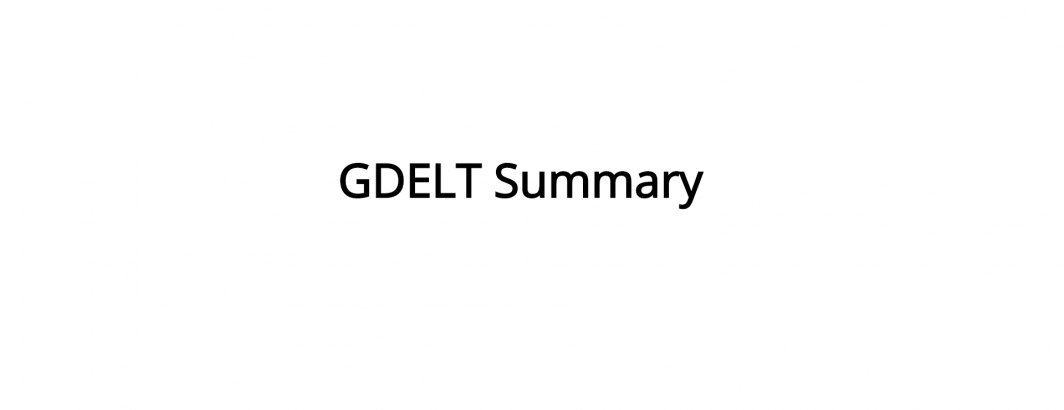
Since the launch of the GDELT DOC 2.0 and GEO 2.0 APIs earlier this year, they've become developer staples for building tools that can gaze across the entire planet, seamlessly bridging geography and language to watch the world in realtime. Yet, as these APIs have found their way into an ever-growing number of communities of practice, from wildlife crime to epidemiology, peace building to natural disaster response, we've heard loud and clear from you the need for a user-friendly non-technical way of using them without having to learn complex APIs, URL parameters and JSON output.
Today we are tremendously excited to announce the debut of GDELT Summary – our answer to this call. GDELT Summary is a powerful browser-based global multilingual and visual online news search platform that offers a simple non-technical interface to searching the textual and visual narratives of the world's news media. You can enter your search using simple keywords and dropdown filters, select the displays you want to see, and click a single button to generate an instant news dashboard that summarizes global coverage of your topic.
The resulting dashboard can be shared with others simply by forwarding its URL. The underlying data is updated every 15 minutes, meaning each time you access the dashboard the results will reflect the latest global coverage. This means you can create a dashboard that summarizes the last 24 hours or the last week and visit it each morning or each week to see a running live summary of what's happening globally.
GDELT machine translates all global online news coverage it monitors in 65 languages representing 98.4% of its daily non-English monitoring volume. Summary allows you to harness this vast realtime translation of the world's news media firehose. When you search GDELT Summary, you are searching these English machine translations of all global coverage monitored by GDELT, meaning your keywords are entered in English and all relevant coverage published in any of the 65 translated languages will be returned to you, eliminating publication language as a search barrier (pair with Google Translate to view coverage from languages you don't read yourself).
Most powerfully, Summary makes it trivial to leverage GDELT's processing of one million global news images per day through Google's Cloud Vision API, letting you perform deep learning-powered global news imagery search and even combine visual and textual searches, such as looking for coverage of climate change that features imagery of climate-related protests rather than just general coverage of the topic. The ability to leverage advanced neural network image recognition to interactively search global news imagery to understand the visual narratives underpinning our understanding of global events offers unprecedented capacity to explore how we understand the world around us.
Under the hood, GDELT Summary is essentially a user-friendly interface to a subset of the GDELT 2.0 APIs, meaning that just above or below each visualization/display is a set of links to let you download the display as a static image, download the data in CSV or JSON format for further analysis, or view the HTML code to embed that specific visualization in your own webpage. Thus, even technical users can use Summary as a quick way to get started using the GDELT 2.0 APIs. This first version of Summary makes available the most commonly used capabilities of the GDELT 2.0 APIs and we will be gradually adding in more advanced capabilities over time.
We'd love to hear your feedback on this new interface and especially specific features or displays you'd like to see added or ways you think we can make certain features clearer, as the goal of GDELT Summary is to create a tool that allows anyone, anywhere to harness the full power of GDELT's textual and visual search tools to understand global events and narratives.
Get Started With GDELT Summary